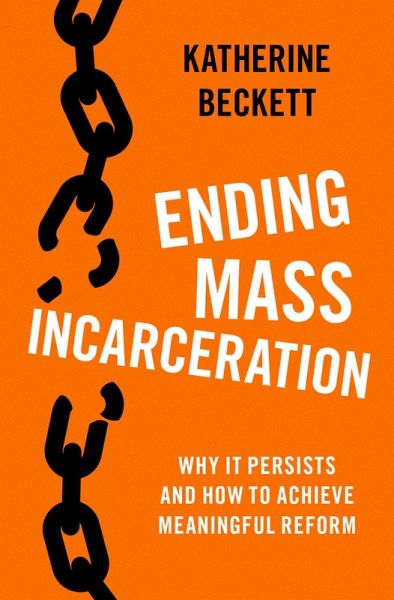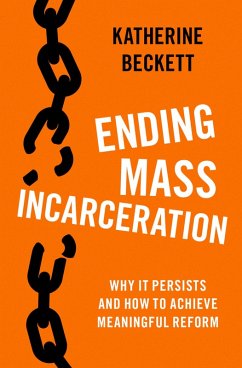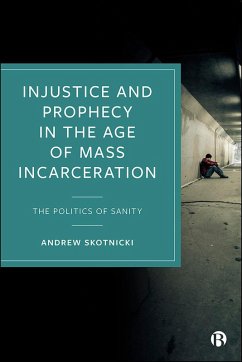
Ending Mass Incarceration (eBook, ePUB)
Why it Persists and How to Achieve Meaningful Reform
Versandkostenfrei!
Sofort per Download lieferbar
7,99 €
inkl. MwSt.
Weitere Ausgaben:

PAYBACK Punkte
4 °P sammeln!
Why mass incarceration endures in the face of reforms, and how to truly change America's vast criminal justice system Critics on both the left and the right increasingly use the term "mass incarceration" to call attention to the unprecedented scale and inequities of the U.S. criminal legal system, and the havoc it wreaks. But even as lawmakers begin to embrace criminal justice reform, the criminal legal response to crime is harsher than ever. In this book, Katherine Beckett explains how and why mass incarceration persists despite growing recognition of its many failures, plummeting crime rates...
Why mass incarceration endures in the face of reforms, and how to truly change America's vast criminal justice system Critics on both the left and the right increasingly use the term "mass incarceration" to call attention to the unprecedented scale and inequities of the U.S. criminal legal system, and the havoc it wreaks. But even as lawmakers begin to embrace criminal justice reform, the criminal legal response to crime is harsher than ever. In this book, Katherine Beckett explains how and why mass incarceration persists despite growing recognition of its many failures, plummeting crime rates, and widespread efforts by state legislators and others to reduce prison populations. Beckett identifies three primary forces sustaining incarceration rates in this country: political dynamics around violence, resistance to criminal legal system reform in suburban and rural counties, and the failure of popular drug policy reforms to reduce the reach of the criminal legal system. Most reform efforts to date have limited themselves in ways that are politically palatable but do little to curb key drivers of mass incarceration. Beckett then turns to the question of how we can meaningfully decrease the size of the criminal justice system when so many reforms have failed. Drawing on extensive research, she argues for political and policy shifts that would significantly reduce the scale of punishment while also addressing the underlying social problems to which those extreme penalties are a misguided response. We need to end excessive sentencing and tackle the myth of monstrosity that fuels these inhumane sentences. We need to expand restorative justice principles that offer alternative ways of promoting accountability and healing. We need to expand harm-reduction and community-based responses for less serious crimes such as drug law violations. And in a broader sense, we need to reimagine our view of public safety and understand that locking up millions of our fellow citizens does not make us safer. Rather than focusing on one key change as a miracle cure for our criminal justice system, Ending Mass Incarceration provides a cogent analysis of the dynamics working to sustain mass incarceration, the reforms that have been attempted to date, and the reforms we need to bring about truly transformative change.
Dieser Download kann aus rechtlichen Gründen nur mit Rechnungsadresse in A, B, BG, CY, CZ, D, DK, EW, E, FIN, F, GR, HR, H, IRL, I, LT, L, LR, M, NL, PL, P, R, S, SLO, SK ausgeliefert werden.













